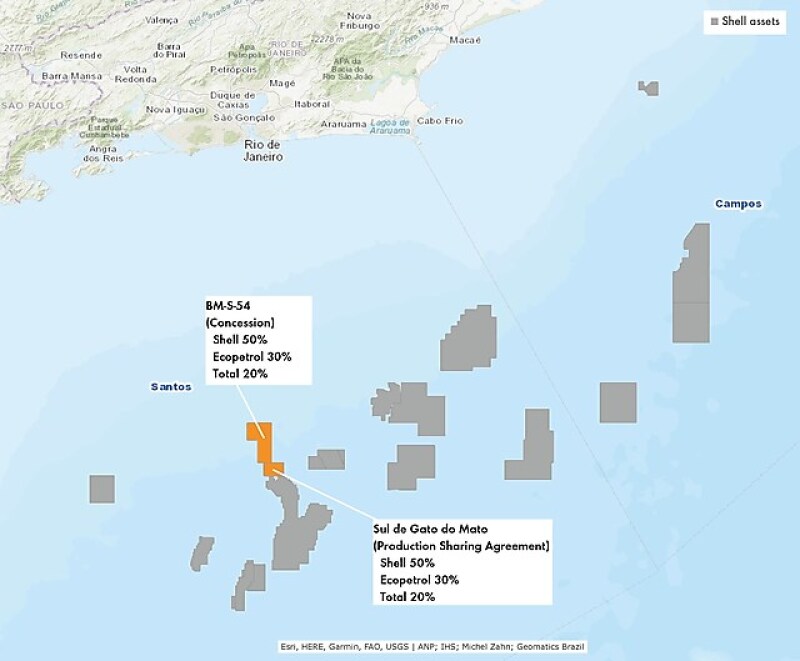Shell has informed its vendors that it expects its final investment decision on the Gato do Mato pre-salt field development offshore Brazil will not be made within the next 12 to 24 months. Just a few weeks ago, BW Offshore received a 3-month extension on its limited notice to proceed (LNTP) related to the field’s floating production, storage, and offloading (FPSO) vessel. The extension was valid until 15 February 2023.
BW Offshore now expects to receive formal notification terminating the LNTP in due course. The contractor will be reimbursed for costs incurred in line with the agreed terms of the LNTP. The FPSO lease and operate contract was due to have a firm period of 18 years with 7 years of options.
The LNTP was awarded in May and was valued up to $50 million. Initial plans would have seen Shell and its partners award a lease and operate contract to a consortium consisting of BW Offshore and Saipem, which will be jointly responsible for the engineering, procurement, construction, and installation (EPCI) of the FPSO with expected delivery in 2026.
“We have a clear strategy of developing and operating infrastructure-type floating production solutions with long-term contracts and investment-grade counterparties. Gato do Mato is a robust project meeting all our requirements,” said BW Offshore chief executive Marco Beenen at the time of the LNTP award. “We will replicate the Barossa project model, bringing in equity partners, and take it one step further by partnering with Saipem for the EPCI phase to add execution capacity and capabilities. We are very pleased to team up with Saipem and look forward to building a long-term relationship with Shell and its partners in Brazil.”
The Gato do Mato project is a presalt gas-condensate discovery that covers two neighboring blocks: BM-S-54 and Sul de Gato do Mato. The Santos Basin field is about 200 km offshore Brazil, in water depths around 2,000 m. In 2019, Shell farmed out 30% of the field to Ecopetrol. Shell retained a 50% working interest and operatorship of the discovery. TotalEnergies holds the remaining 20% stake.


